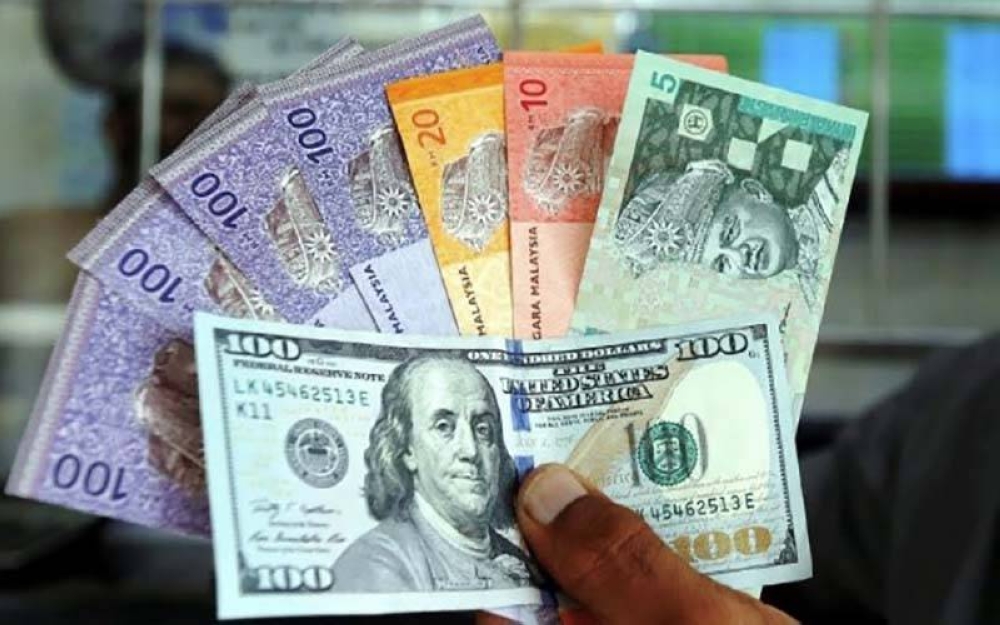The ringgit on a roll, momentum may sustain

SHAH ALAM - After being battered for the past several years, the ringgit is expected to rebound over the medium term riding on the country's stable economic growth.
Economists say the ringgit has been on a roll due to the stable economic situation and returning foreign direct investments.
"The value of the ringgit is driven by multiple factors but the core determinant is economic stability.
Malaysia is moving into a more stable economic environment with lower inflation and more normal growth. The higher growth is driven by the boom and bust policies of the last three years is over now.
So the ringgit will strengthen," said Professor Dr Geoffrey Williams.
Williams said of course it is also driven by international factors outside the control of Malaysian policy makers including the weakening of the dollar and other regional currencies and this is having and effect.
"We expect the ringgit to stabilize around RM4.20-RM4.30 to the US dollar unless there are big shocks to the international economy," said the economics professor at the Management, Science and Technology University.
"The impact will be positive on the economy but the many drivers of economic performance will still be domestic policy, the upcoming budget and the investment environment.
He added foreign exchange rates in the long-term are driven by fundamentals such as growth, low inflation and stable credible policies. In the short-term they are determined by market sentiment and cannot be controlled by policies.
"The short-term concerns that causes the ringgit to weaken during the end of last year are over," Williams told Sinar Daily
A weakening US dollar
The ringgit is on the roll also due to weakening US dollar as inflation rate in the US is declining further to 6.45 per cent from 7.11percent which triggered speculation that the US Federal Reserve will not be that aggressive in increasing the interest rate. Associate Professor Dr Ahmed Razman Abdul Latiff said the momentum will depend on the actual decision that will be made by the Federal Reserve soon on the interest rate.
"Strong ringgit will encourage imports but will make our exports expensive so this could further narrow our trade balance, which is currently still in positive value," Razman told Sinar Daily.
Malaysian funds equally attractive in the US
Since the surge in inflation in the West to as high as 10 percent in the US, UK and Europe have jacked up their benchmark interest periodically last year. These increases are to muffle consumption and investment spending as these interest rate spikes made the cost of borrowing higher.
For example the Bank of England has raised interest rates to 3.5 percent and it is expected to peak at 4.75 percent in 2023 to stem inflation rate.
Professor Datuk Dr John Antony Xavier said similarly the interest rate has also risen to 4.5 percent in the US.
"This rate is the highest since 2007 and as a result of all these increases, the Western financial markets became attractive for funds to flow out of the emerging markets like Malaysia to seek safe and attractive havens in the West.
Such outflows had depressed the ringgit last year.
"This year though, interest rate rises in the West have been relatively muted given the success of developed countries in bringing their interest rates to heel.
As such the outflow of funds from Malaysia have been stanched. This has eased the pressure on the ringgit and has caused the ringgit to appreciate," Xavier told Sinar Daily.
The AIMST University vice chancellor added the ringgit appreciation is a result of the weakening dollar as the demand for the greenback has eased given the stable interest rates there.
This momentum of the ringgit can be expected to last as the US and the West face the prospect of a recession in 2023.
"Interest rates will not go any higher lest the recession is precipitated earlier.
The recession in the West is because of the slowing economy brought on by elevated interest rates which were hiked to reduce domestic demand in the advanced countries.
The dollar to remain weak?
As the dollar slows down and is expected to remain weak,the ringgit in turn will relatively appreciate against the greenback.
A strong ringgit will make imports cheaper as 60 percent of our raw materials for domestic manufacture are sourced from overseas and a strong ringgit will reduce the cost of production. As such our competitiveness which is the ability to export more will be improved.
"The downside of a ringgit appreciation is that it will make our exports generally more expensive and offset any gains from lower imports of our raw and intermediate products.
However, with the stronger ringgit, tourism and imports will become relatively cheaper," said Xavier.
This might affect adversely our balance of trade as we import more and we spend more overseas," said Xavier.
Alternately, the US has recorded an annualised growth rate of 2.5 percent in the 4th quarter of last year.
Recession fears have been pushed further down the road.
This robust growth is on the back of a rebound in consumer spending and non-housing investment.
If the American economy stays strong so will it’s dollar then the ringgit might not appreciate much.














